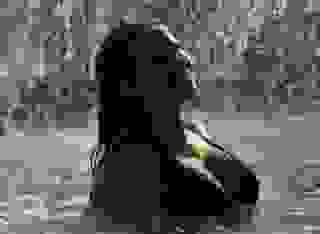Note: You can change font size, font face, and turn on dark mode by clicking the "A" icon tab in the Story Info Box.
You can temporarily switch back to a Classic Literotica® experience during our ongoing public Beta testing. Please consider leaving feedback on issues you experience or suggest improvements.
Click hereThe sun was high in the morning sky, and for some reason it seemed unnaturally bright. Of course temperatures were climbing to unheard of levels, and to make matters worse it was long past her bedtime. The Institute's cadets had been asleep for hours and she was exhausted, but she knew sleep would never come until these rumors were dealt with. She walked to the window and looked at the sun once again: not yet noon and already151 degrees. If there was a reactor failure, and the power failed?
Without air conditioning, what would they do?
Die, she said to herself. Quickly, and horribly.
She increased the polarization of her office windows and pushed another button, retracted the metal solar-shutters, looked through the slits at the amber-haze and roiling thermals that filtered her view of the city. Two air-cars approached; one broke off for the city while the other slowed, banked into a hard right turn and circled to bleed off speed. It was Sinn's car, she saw, and the Commandant smiled as it settled into a hanger just a few meters from her window. The canopy opened as the hanger doors wheezed shut and she watched as Sinn August-dottir climbed out of the car and darted into the air conditioning; she frowned once again at the consequences of so much heat, so early.
A moment later Sinn walked into the Commandant's room.
"I've never felt such heat, Nyx," the Justinian said as she made her way to the chair. "It was 150 degrees in the air over Rampart and the park, and this by 0930!"
The commandant nodded her head but ignored the implications. "Work progresses on schedule, or so I have heard. The mountains will be ready in time, and we will survive." She turned around and looked at the Justinian. "What have you found? Tell me."
"A tunnel, of sorts."
"A tunnel?"
"Perhaps more a passageway."
"And? What is so interesting about this tunnel?"
"We went down three hundred paces, came to a sealed door, more like a bank's vault. Very heavy, impossible to open without codes. Sensors watched us all the way down."
"You think you were being watched?"
"Cameras moved as we moved, Commandant. Yes, we were watched."
"And codes, you say."
"There were retina scanners and finger-pads, Commandant."
"Who knows of this?"
"Myself and Commander Weblen-son, and the three officers with us."
"No more?"
"No, Commandant."
"Have you told the Tribonian?"
"No, Commandant; just Weblen-son and the other three know of this." Sinn looked at Nyx, wondered what the other woman -- for years her mentor -- was thinking. "Can we not trust him?"
The Commandant shook her head, lost in thought. "No. I think not."
That revelation shook the Justinian: "Why not?"
"I'm not sure. Just a feeling."
"Oh."
"Yes. 'Oh.' Call it a woman's intuition. It may be that simple, but I feel like he knows something, like he's keeping an important secret from us."
Sinn nodded. "Yes. I too have felt that."
"And perhaps for quite some time." The Commandant looked at Sinn, at the downward cast of her face, the sorrow that had only recently etched deep lines around her eyes. "I see you have taken the ring off. What do you plan to do now?"
"I'm not sure yet."
"You look sad. I did not think you liked the boy so."
"Yes. Neither did I. There was something about him, Nyx, something I can't quite put my finger on. Some deeper purpose in his eyes, and I suspect that was what attracted me most."
The Commandant watched Sinn August-dottir, watched her soft eyes and her delicate fingers steeple as she talked, as the younger woman became almost entranced -- lost perhaps, as if in prayer. She moved to Sinn's side and stroked her hair -- a maternal impulse to be sure, but an impulse as confused as any the Commandant had endured in recent years. She loved Sinn completely but struggled with this most evil of impulses -- the Church regarded such union as heresy, as reason for excommunication and even banishment. She shuddered at the thought; images of others so castigated remained with her from her own time on the force. Bodies withered from relentless radiation, some falling to cancers caused by localized radiation from power plants shattered during the resource wars. Most of the basin was a wasteland now, a wasteland of truly biblical proportions.
Yet all biblical prophecy had come to pass, hadn't it?
Those non-believers who claimed what had happened was little more than self-fulfilling prophecy had been deluded, and ultimately purged from the Body of Christ. What was left had been sanctified, cleansed in the baptismal fount of war and re-birth...
"Was he one of the Taken?" the Commandant heard Sinn ask, and she stopped running her fingers through the girl's hair -- for a brief moment. They rarely spoke of such things even now, rarely acknowledged the truth of what had been done in the aftermath of the Second Secession War, but the Commandant felt she owed Sinn at least this small measure of truth.
"Yes. He was."
"Oh, dear God, no..." Sinn whispered.
"Perhaps that is the strength you recognized in the boy."
"Commandant, could it be that was why he was taken, and I was not?"
The thought seemed to hit the Commandant like a blow to the gut; it very nearly took her breath away and she walked to her desk, opened a file on her computer and studied its contents. The consequences of failing to act now might well be catastrophic; the boy had been abducted a week ago, and if his abduction was not an accident there was no telling how deep this went.
Yes, she said as she read the files, the time had come; she had to -- they had to act now -- there were no more alternatives. Act now, and act with the full fury of God behind their actions.
She looked at the link at the bottom of the page one last time before touching it, before summoning a full emergency plenary of the Senatus and the Church, and she wondered with awe in her heart just what might come from all the force she was summoning, ready to unleash on the Unbelievers one last time.
+++++
The Watcher's name had once been Thomas Stormgren, and so it was again.
Reunited with his wife and two boys, the nightmare of the past fifteen years was over; the final phase of a plan almost twenty years in the making was beginning to take shape. Surgery to remove the implants had been painful but regeneration sprays had healed the wounds inside of three days; memory still flooded into consciousness causing short periods of anomie -- and these bouts were always followed by severe agitation -- but slowly elements of his earlier life were drawing into sharper focus.
After the First Resource War, and long before the ascendance of Church Elders to total power, before the creation of the SenatusConsultus and implementation of the Corupus Iurus Civilis II, select members of the military from around the world had been recruited to join a new organization. Membership was limited to those few who had not fallen yet into the radical new evangelicalism, and these military leaders had been summoned by scientists and engineers to discuss a radical idea, a plan to save a last remnant of reason from the coming dark ages. Resources were diverted, the first layers of infrastructure planned and built. Even as resource wars broke out and raged, even as the First Republic and member states of the European Union fell to increasingly radical right wing forces, and even as civilization itself began to fail under the weight of devastating population increases and catastrophic climatic collapse, the self-proclaimed BlackWatch organization funneled more and more resources into the implementation of this daring plan.
The earth was, scientists explained, doomed -- at least as far as continued human habitation on the planet's surface was concerned. Plans to move underground would, they reasoned, fail -- due to the same reasons life failed on the surface: population pressure and dwindling resources managed by the superstitious and those consumed by other mysticisms. An underground civilization would become as Hobbes and Malthus predicted; life would become nasty, brutish and short and renewed population pressure in a finite space would ensure final extinction. Life on earth could be extended perhaps fifty years by moving underground, but the end would be the same. There had to be another way to keep humanity alive, and to keep the flame of reason burning.
And this other way had come from a most unexpected place.
NASAs Planet Finder Telescopes, the first series launched in the 2020s, had revealed scores of worlds within 50 light years, and many seemed likely candidates for further research; of these a few dozen had been revealed -- by spectroscopic analysis -- to possibly be hospitable to carbon-based life. A second, more powerful series of telescopes was launched in the 2030s, and one of these had been successful in resolving three of these planets in extraordinary detail, detail sufficient to conclude that human life might have a chance of surviving on one, or possibly all three. They each had oceans and land masses filled with snow-capped peaks, rivers and forests and grasslands. None showed signs of an advanced, industrialized civilization.
Then came the neoconservative resurgence of the 2050s, and the rise of the so-called American Ayatollahs, then states seceding from the union -- all happening as the climate began heating at unprecedented rates and crops began failing globally. Local conflicts between impacted states spilled into regional wars, emerging superpowers were pulled by treaty obligations into protecting failing client states, and then exchanges of nuclear weapons followed. At the same time, civil wars raged within militaries around the world as the forces of evangelism, suddenly emboldened by their resurgence, began to purge non-believers from their ranks. At that point the BlackWatch organization began moving into prepositioned sanctuaries, but many could not move fast enough to protect their families.
Perversely, children of these warriors were seized not as hostages but to seed a new generation of evangelical soldier, and these children had been collected, whenever possible, after their parents were killed. But others were simply abducted and their parent's killed, and most of these children were raised in monastic orders, indoctrinated in the ways and beliefs of a new world order, raised to protect Christian society until cities could be built under the earth. Perhaps by then, the thinking went, these Christian warriors would be ready to rule the Underworld in His name.
The BlackWatch, of course, tapped into the surveillance organs of these new state organizations, slipped agents into the framework of power around the world. Resistance fighters, most former military, were re-tasked and re-armed, then turned loose to harass local governments, and all these activities were coordinated by hundreds of men, fathers for the most part, who had been surgically augmented to interface with networked super-computers around the world.
In the end there was little said or done by the SenatusConsultus that was not monitored by the BlackWatch; indeed, most human activity on the surface was eventually fed into their sprawling network. In time the BlackWatch realized there was little need to interfere in the affairs of the mystics; they were rapidly imploding, taking with them most of the earth's remaining population, yet over time their aim became more compassionate. The BlackWatch wanted to help manage civilization's collapse -- to minimize human suffering, and to preserve a nucleus of people, people who would journey to the stars in search of a new home.
And yet Thomas Stormgren, the Watcher, remembered everything he had ever experienced while connected to the network.
Everything.
And he remembered just learning about a project the SenatusConsultus had long been rumored to be working on. Something that had to do with turning the earth into a star, so that humanity could spread out on solar winds -- and grow even closer to God.
+++++
Aurelius Krül-son's birth name was Austin Stormgren, and he was Thomas' youngest son. His mother, Sarah, escaped with his brother James into the BlackWatch network when the first great purge began; she had almost managed to get to Austin before the military police arrived at the base school, but looked on helplessly as all the children on the base were taken into "protective custody" -- no reason given, no reports of their whereabouts attainable. She knew enough about the BlackWatch to trust them when they told her they would be able to monitor her son, to look out for him. Though heartbroken, she had resumed work as an engineer for Lockheed-Martin in their newest facility, located in the cold, hard granite five hundred feet beneath the vast Hydro-Quebec facilities near Chisasibi, Canada. She was able to watch intermittent video feeds of his progress through school, though more often than not these tended to depress her severely for days on end.
As hard as it had been for Sarah Stormgren to lose this vital contact with her son, when Thomas volunteered to move to The Magic Mountain, the so-called Human-Hybrid Super Computer facility located under an old sanitarium outside of Davos, Switzerland, she had been completely devastated. Thomas had the intellect for this work and, quite suddenly, vast amounts of time on his hands. With no pressing need for pilots, he began analyzing tactical and strategic options. What active military was left of the First Republic had been concentrated in the hands of US Navy submariners, and all had effectively made it under the protective aegis of the BlackWatch. New bases were built for the old subs, and while they rarely went on patrol, their missiles were constantly upgraded. And ready for use.
But on what?
One of the SenatusConsultus' first decrees was to eliminate all military and police who refused to take the new oath of allegiance; this had the unintended consequence of driving the few undecided officers and enlisted men into covert service for the BlackWatch. By further SenatusConsultus decree, those high-ranking officers that remained, and who wished to serve government in a high-ranking capacity, had to either submit to chemical castration or join a monastic order and work under those conditions. Most of the men that chose to submit were, oddly enough, already members of the BlackWatch, and so the series of infiltrations that took place over the coming years were in a way pre-ordained.
The SenatusConsultus, at first composed of fearful old men and ambitious young women, grew increasingly leery of letting these retired military men serve in any capacity unless neutered; the First Reforms enshrined this trend by concentrating power in the hands of people who knew well the Evils of Testosterone. The only men in the SenatusConsultus were, in consequence and predictably, chemically castrated; only later was it required that they possess a degree from the new military-theological seminary in Bethlehem.
Ironically, it was at this time that women in the SenatusConsultus began experimenting with the use of testosterone, and with quite unexpected results. These women soon became territorial and predatory; they fast developed a lust for power that soon grew to heights once seen only in members of the First Republic's senate, and a fair amount of sexual predation was rumored to have been concealed by Justinians guarding the SenatusConsultus proper in New Jerusalem. Gender identity issues surfaced during this period as well, particularly within the Justinian class, as women were increasingly attracted to one another. As testosterone use soared, predation on underage children, particularly young girls, become more and more prevalent among members of the SenaturConsultus, to the point that these children were put on display as symbols of status. The use of prohibited toys was rumored to be out of control, as well.
It was also during this period that the use of illegal, mostly homemade narcotics skyrocketed. Psychobiologists had long known there was a connection between a propensity to experience religious euphoria and the various addictive disorders associated with narcotics use; academics studying this phenomenon had concluded decades before that areas in the brain that governed religious euphoria were indeed the same regions of the brain stimulated by narcotics, especially hallucinogenics -- and not coincidentally this area of the brain mediated chemical dependence and addiction.
With the global environment collapsing, more and more people turned away from this painful new reality and fled inward; people either sought explanation and comfort through religious experience or fell into a landscape of narcotics induced delusion. Human productivity fell precipitously, apathy became the norm until new varieties of religious experience emerged as a practical solution to the problem of narcotics addiction. New cycles of dependence emerged as despairing people lurched from religious to chemically induced states of euphoria, with ever stronger doses of each needed to quell such misery.
With the draconian penalties imposed by the First Reforms, religion finally began replacing narcotics use on a vast scale; some critics implied that, in effect, one addiction had been replaced with another, more socially desirable addiction. But a further benefit emerged, one with more immediate consequences: people addicted to narcotics had for centuries proven to be very hard to control; yet as had been discovered near the end of the First Republic, those subsumed to religious mysticism and irrationalism were much more docile and far easier to manipulate for political gain. The SenatusConsultus was able to consolidate power globally after that effect was taken into consideration, and with only token resistance.
The BlackWatch, not coincidentally, elevated reason to the status of religion and banned traditional religious expression. The practical result of this edict was shocking and almost immediate: depression and suicide rates skyrocketed within months, social cohesiveness declined and apathy increased. Clearly, without some sense of greater Purpose the human animal withered and degenerated into chaos -- or Hell, depending on your point of view. The social engineers counseling the BlackWatch were stunned by this finding and had no ready explanation, and no solution to offer.
It was during this transformative period that the last Terrestrial Planet Finder telescope put in orbit made its final and most shocking discovery, and this event bound together members of the BlackWatch as nothing ever had.
For you see, the orbital telescope had found, and this quite by accident as it turned out, a sailing vessel -- seemingly adrift -- in a sea of stars.
+++++
Thomas Stormgren shook his head, steepled his fingers reflexively while he listened -- his two boys Jamie and Austin had a plan for getting all the remaining BlackWatch operatives out of Los Angeles, and while their idea had merit the proposed operation seemed more than risky. Now that the entryway to the Mag-Lev tunnel had been discovered, getting their people out of the region had become a high priority, and it would simply be a matter of days until enemy forces crushed each successive barrier and gained the Mag-Lev platform. The most likely result: the BlackWatch would lose physical contact with the west coast, and all their agents in the region would be lost. There simply wasn't time to construct a new access-way, or divert the other resources needed to get these people out, but as is usually the case in such instances, the effort had suddenly taken on hues of a moral imperative.
And yet, Stormgren wasn't so sure there wasn't a girl behind Austin's thinking. That Justinian. When he watched his son talk about Sinn, a veil slipped over the boy's eyes. Attraction? Probably? Political utility? Maybe. But...was the kid simply horny as hell?








